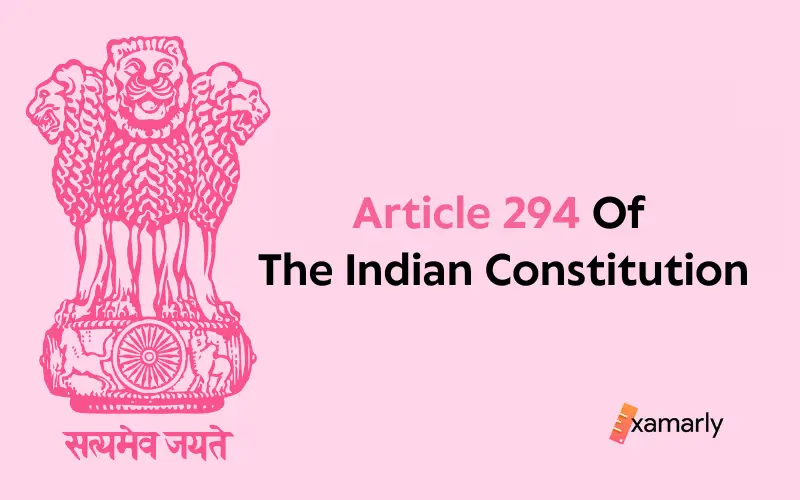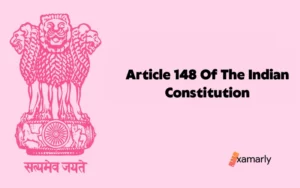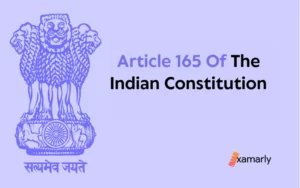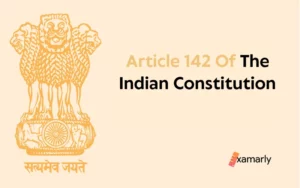Article 294 of the Indian Constitution talks about the succession to property, assets, rights, liabilities and obligations in certain cases s from the commencement of this Constitution.
Let us dig deep into Article 294 of the Indian Constitution and get to know about everything that has been said in the aforementioned Article.
Article 294 Of The Indian Constitution – In Detail
We will break down each and every clause present in Article 294 of the Indian Constitution to have an in-depth understanding of what is being said and done.
Clause – As it is & Explained
(a) all property and assets which immediately before such commencement were vested in His Majesty for the purposes of the Government of the Dominion of India and all property and assets which immediately before such commencement were vested in His Majesty for the purposes of the Government of each Governors Province shall vest respectively in the Union and the corresponding State, and
(b) all rights, liabilities and obligations of the Government of the Dominion of India and of the Government of each Governors Province, whether arising out of any contract or otherwise, shall be the rights, liabilities and obligations respectively of the Government of India and the Government of each corresponding State, subject to any adjustment made or to be made by reason of the creation before the commencement of this Constitution of the Dominion of Pakistan or of the Provinces of West Bengal, West Punjab and East Punjab
The first subclause of a clause in Article 294 of the Indian Constitution says that all property and assets that belonged to His Majesty before that date for the purposes of the government of the Dominion of India and all property and assets that belonged to His Majesty before that date for the purposes of the government of each Governor’s Province will belong to the Union and the corresponding State.
The second sub-clause says that the subject to any adjustment made or to be made by reason of the creation before the commencement of this Constitution of the Dominion of Pakistan or of the corresponding State, (b) all rights, liabilities, and obligations of the Government of the Dominion of India and of the Government of each Governor’s Province, whether arising out of any contract or otherwise, shall be the rights, liabilities, and obligations respectively of the Government of India and of each corresponding State.
You Might Also Like – Article 260 Of The Indian Constitution
Summing Up
We can conclude from Article 294 of the Indian Constitution that in some situations, the provisions of this Constitution relating to property, assets, rights, liabilities, and responsibilities take effect immediately upon the beginning of this Constitution.
As of the date of such commencement, the Union and the relevant State will become the legal owners of all assets and property previously held by His Majesty for the benefit of the Government of the Dominion of India.
FAQs
What is the process of buying property in India?
The process of buying property in India involves the following steps:
Identify the property you wish to purchase and obtain its sale deed and title documents.
Check the title of the property to ensure it is clear and there are no disputes or encumbrances.
Obtain a home loan or arrange for the funds needed to make the purchase.
Sign the sale agreement and pay the booking amount or token advance.
Pay the remaining amount and obtain possession of the property.
Register the sale deed at the office of the sub-registrar in the jurisdiction where the property is located.
Can a non-citizen buy property in India?
Yes, a non-citizen can buy property in India. However, there are certain restrictions and conditions that apply. Non-citizens of Indian origin, such as persons of Indian origin (PIOs) and Overseas Citizenship of India (OCI) holders, can buy immovable property in India except for agricultural land, farmhouses, and plantation property. Other non-citizens can also buy immovable property in India, but only with the prior approval of the Reserve Bank of India (RBI).
Can joint ownership of the property be registered in India?
Yes, joint ownership of property can be registered in India. Joint ownership can be either as joint tenants or as tenants-in-common. In the case of joint tenants, all the owners have an equal and undivided interest in the property, and upon the death of one owner, the surviving owners automatically become the owners of the deceased owner’s share. In the case of tenants-in-common, each owner has a separate and distinct share in the property, and upon the death of one owner, the deceased owner’s share passes on to their heirs as per their will or as per the laws of inheritance.
Can the property be inherited in India?
Yes, the property can be inherited in India. The laws of inheritance in India are governed by the personal laws of the deceased, which are based on their religion. In general, the laws of succession say that the legal heirs of a person who has died can inherit their property. The legal heirs of a deceased person or example would be the deceased’s spouse, children, parents, and siblings, in that order.






